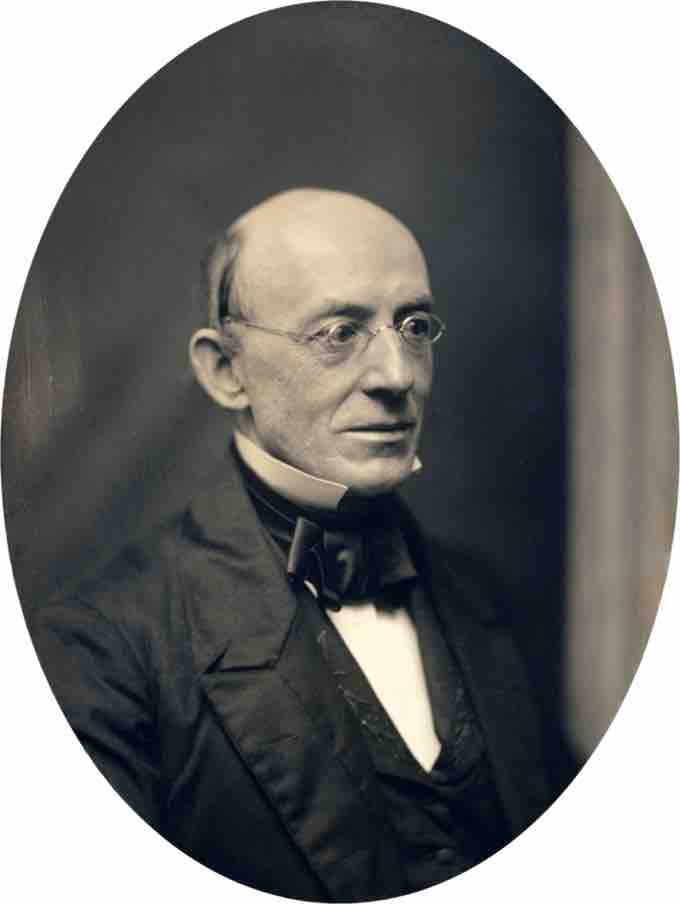Slavery in the South
In eleven states constituting the American South, slavery was a social and powerful economic institution, integral to the agricultural economy. In the early nineteenth century, the cultivation of a new strain of short staple cotton, coupled with the invention of the cotton gin that made processing the crop easier, created a cotton boom. Slavery quickly became more economically viable on a large scale.
In the decades immediately following the ratification of the Constitution, slavery in the South continued without substantial opposition from the North. Though some in the North viewed slavery as a moral issue, most were indifferent. Some even believed that the abolition of slavery would be detrimental to their economic interests, whether by slowing the supply of slave-produced raw materials from the South or through increased job competition as thousands of freemen flooded the northern markets. Because slavery represented the basis of the southern social and economic system, even those who did not own slaves the South often violently opposed any suggestions for ending the practice, whether through abolition or gradual emancipation.
Many Northerners increasingly criticized slavery as an inefficient labor system, even if they remained indifferent to its moral dimension. While relatively few Northerners favored outright abolition, many more opposed the expansion of slavery into new territories. As territories became states, the existence of slavery there would artificially expand the political power of the slave states in the U.S. Congress.
Abolitionism
As the nation expanded in the 1830s and 1840s, the writings of abolitionists—a small but vocal group of Northerners committed to ending slavery—reached a larger national audience. The abolitionist movement in the North was led by social reformers such as free blacks, evangelical reformers, and William Lloyd Garrison, founder of the American Anti-Slavery Society. American abolitionism was accused by many of threatening the harmony between northern and southern states in the Union.
Garrison and Immediate Emancipation
William Lloyd Garrison of Massachusetts distinguished himself as the leader of the abolitionist movement. In the 1830s, he demanded, "immediate emancipation, gradually achieved." In other words, he demanded that slave owners repent of the sin of slave holding immediately and take steps to emancipate their slaves. He wrote of equal rights and demanded that blacks be treated as equal to whites. Garrison founded the New England Anti-Slavery Society in 1831 and the American Anti-Slavery Society (AASS) in 1833. By 1838, the AASS had 250,000 members, sometimes called "Garrisonians."

William Lloyd Garrison
William Lloyd Garrison led the abolitionist movement in the North and founded the American Anti-Slavery Society (AASS) in 1833.
The AASS rejected colonization—the proposal to send free blacks back to the new colony of Liberia in Africa—as a racist scheme and opposed the use of violence to end slavery. Influenced by evangelical Protestantism, Garrison and other abolitionists believed in moral suasion, a technique of appealing to the conscience of the public, especially slaveholders. Moral suasion relied on dramatic narratives, often from former slaves, about the horrors of slavery, and the argument that slavery destroyed families, as children were sold and taken away from their parents. Moral suasion resonated with many women, who condemned the sexual violence against slave women and the victimization of southern white women by adulterous husbands.
The Liberty Party
Although Garrison rejected the U.S. political system as a tool of slaveholders, other abolitionists believed mainstream politics could bring about their goal, and they helped create the Liberty Party in 1840. Its first candidate was James G. Birney, who ran for president that year. The Liberty Party did not generate much support and remained a fringe third party. Many of its supporters turned to the Free-Soil Party in the aftermath of the Mexican Cession.
Southern Responses
White Southerners responded by putting forth arguments in defense of slavery, their way of life, and their honor. In making their defense of slavery, they critiqued wage labor in the North. They argued that the Industrial Revolution had brought about a new type of slavery—wage slavery—and that this form of “slavery” was far worse than the slave labor used on southern plantations. Defenders of the institution also lashed out directly at abolitionists such as Garrison for daring to call into question their way of life. Many white Virginians blamed Garrison for stirring up slaves and instigating slave rebellions such as the one led by Nat Turner.
Beginning in the 1830s, the U.S. postmaster general refused to allow the postal system to carry abolition pamphlets to the South. Northern teachers suspected of abolitionism were expelled from the South, and abolitionist literature was banned. Discussion of slavery-related issues was prohibited on the floor of the U.S. House of Representatives, and those members who dared breach the topic were censured.